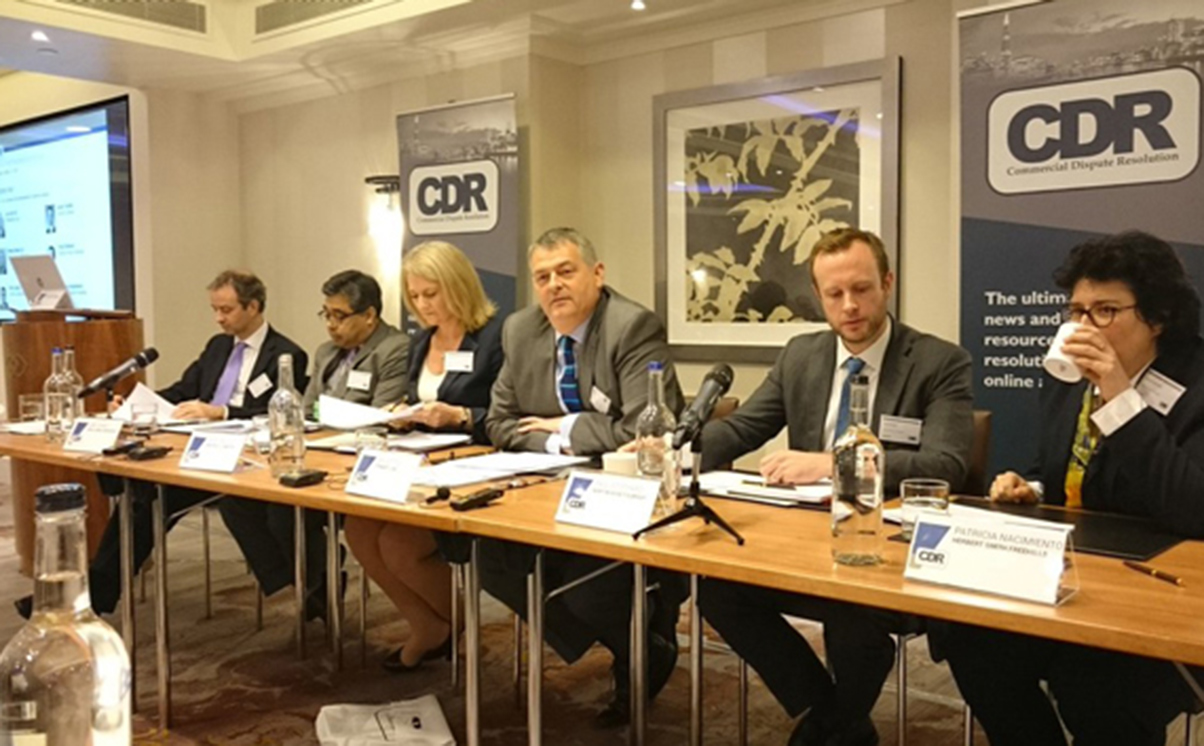Philippa Charles writes in the Scottish Arbitration Centre’s newsletter about the challenges and opportunities that exist for newer or smaller arbitration jurisdictions.
I was honoured to be asked to speak at the Arbitral Women breakfast seminar preceding the Centre’s Arbitrator Training Day in September. Our theme was one concerning the challenges, and the opportunities, that exist for newer or smaller arbitration jurisdictions to establish themselves as a real alternative to the larger players in their regions, and to draw from the examples of recent developments in newer seats to influence parties and their advisers to choose a less prominent venue for their arbitrations.
We looked at the attributes of successful newer seats which have made a big impression and attracted users: these involve having modern legislation, supportive courts, good infrastructure and hearing venues, as well as a strong body of well trained local lawyers ready to act both as counsel and as arbitrators.
Amongst other things, we highlighted the opportunities that a developing seat can present for women coming into the world of arbitration as prospective arbitrators, and stressed that efforts to address gender diversity imbalances (such as the Equal Representation in Arbitration Pledge) are being strongly supported in smaller and newer seats of arbitration.
In addition, we looked at the challenges facing better-established seats of arbitration in maintaining their dominant position. One issue which we felt a smaller seat could offer was a more nimble approach to accommodating approaches to arbitration which might be considered “unorthodox” in seats, such as London, which have developed a distinctive (and consequently perhaps rather rigid) approach to the process.
In particular, we highlighted recent findings from the Global Pound Conference which demonstrated that parties as users of arbitration would like to see more in the way of a holistic approach to dispute resolution incorporating non-binding and binding processes at the same time.
We all know that the concept of “med-arb”, where the arbitrator also acts as mediator of the dispute, is a controversial one (particularly given the risks that the parties will not freely communicate about weaknesses in their case with a neutral who will ultimately determine the issues if a resolution cannot be found). However, as many centres offer mediation or other ADR services alongside their arbitration rules, it is open to them to promote the non-binding service to the users of arbitration in the course of those arbitration proceedings.
A further issue was one concerning the position of parties from differing legal backgrounds in an arbitration run on strongly “common-law” lines. We identified a risk that a party from a civil law background may feel disenfranchised or disadvantaged in such a process, and saw an opportunity, particularly given Scotland’s characteristics as a “hybrid” jurisdiction, to promote a real responsiveness of the procedure to the needs of civil and common law parties in a balanced way.
Perhaps inevitably, Brexit was raised as a challenge to arbitration in the UK more generally. We focused on the geographic, cultural, and business ties already in place between Scotland and Ireland, and with the Nordic countries, as a basis for future cooperation amongst some of the smaller institutions which could flourish notwithstanding the effects of Brexit.
Our session was warmly and ably chaired by Arbitral Women’s President, Rashda Rana SC, and the co-panellists were Lindy Patterson QC of 39 Essex Chambers in London, AnneMarie Blaney from Ireland, and Carita Wallgren-Lindholm, the incoming chair of the ICC Commission on Arbitration and ADR, from Finland.
To view the Scottish Arbitration centre’s newsletter, please click here.
You can find further information regarding our expertise, experience and team on our International Arbitration pages.
If you require assistance from our team, please contact us or alternatively request a call back from one of our lawyers by submitting this form.
Media contact: Lydia Buckingham, Senior Marketing Executive, +44 (0) 20 7822 8134, lbuckingham@stewartslaw.com


